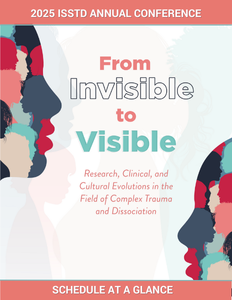Back
Single Paper or Case Study
Paper Session #2
Empowering the Healers: Managing Secondary Trauma Among Trauma-focused Psychotherapists
Sunday, March 16, 2025
8:30 AM – 10:00 AM US Eastern Time
Learning Level: Beginning

Hvovi Bhagwagar, PhD (she/her/hers)
Founder
Manashni
Mumbai, Maharashtra, India
Abstract
Psychotherapists working with trauma-related populations are at significant risk for secondary traumatic stress (STS), a phenomenon characterized by the emotional and psychological impacts of exposure to clients’ trauma. Employing an exploratory and qualitative approach, this research adopts a constructivist grounded theory paradigm to explore the experiences of secondary trauma encountered by psychotherapists in their clinical practice.
The participant group consisted of 16 psychotherapists representing diverse practice settings, all of whom routinely engage with trauma survivors. Data collection involved a comprehensive sociodemographic questionnaire and in-depth, semi-structured interviews. These interviews explored therapists’ personal encounters with traumatic stress, their training and supervision experiences, self-care practices, support and coping strategies, and their experiences of resilience.
The findings suggest that participants employed both personal resources and sought support from external support systems to cope with the impacts of secondary trauma. The coping strategies included the use of personal therapy, reflective and reflexive processes and trauma-informed self-care practices to effectively manage the impacts of trauma-related professional stress. Participants also acknowledged supervision, the supervisory relationship, and social support as important components contributing to adaptation to secondary trauma.
The study offers a direct exploration of the lived experiences of therapists who work with clients enduring severe, multifaceted trauma, emphasizing the critical role of meaning-making as a coping mechanism, thus allowing therapists to maintain their sense of self despite the cumulative distress originating from secondary trauma.
By cultivating resilience and maintaining a strong sense of professional identity, these therapists not only preserved their own dignity but also empowered their clients to reclaim theirs.
India’s pluralistic society and the unique challenges faced by its mental health professionals are critical to understanding the study’s findings. The study explores the sociocultural determinants that influence therapists’ experiences of secondary trauma, such as the lack of formal supervision, the reliance on peer support, and the integration of indigenous coping strategies. The research highlights how these therapists navigate the intersection of their professional duties and cultural expectations, offering insights into the culturally specific adaptations that mitigate the impact of secondary trauma.
Psychotherapists working with trauma-related populations are at significant risk for secondary traumatic stress (STS), a phenomenon characterized by the emotional and psychological impacts of exposure to clients’ trauma. Employing an exploratory and qualitative approach, this research adopts a constructivist grounded theory paradigm to explore the experiences of secondary trauma encountered by psychotherapists in their clinical practice.
The participant group consisted of 16 psychotherapists representing diverse practice settings, all of whom routinely engage with trauma survivors. Data collection involved a comprehensive sociodemographic questionnaire and in-depth, semi-structured interviews. These interviews explored therapists’ personal encounters with traumatic stress, their training and supervision experiences, self-care practices, support and coping strategies, and their experiences of resilience.
The findings suggest that participants employed both personal resources and sought support from external support systems to cope with the impacts of secondary trauma. The coping strategies included the use of personal therapy, reflective and reflexive processes and trauma-informed self-care practices to effectively manage the impacts of trauma-related professional stress. Participants also acknowledged supervision, the supervisory relationship, and social support as important components contributing to adaptation to secondary trauma.
The study offers a direct exploration of the lived experiences of therapists who work with clients enduring severe, multifaceted trauma, emphasizing the critical role of meaning-making as a coping mechanism, thus allowing therapists to maintain their sense of self despite the cumulative distress originating from secondary trauma.
By cultivating resilience and maintaining a strong sense of professional identity, these therapists not only preserved their own dignity but also empowered their clients to reclaim theirs.
India’s pluralistic society and the unique challenges faced by its mental health professionals are critical to understanding the study’s findings. The study explores the sociocultural determinants that influence therapists’ experiences of secondary trauma, such as the lack of formal supervision, the reliance on peer support, and the integration of indigenous coping strategies. The research highlights how these therapists navigate the intersection of their professional duties and cultural expectations, offering insights into the culturally specific adaptations that mitigate the impact of secondary trauma.
Learning Objectives:
At the conclusion of this session participants will be able to:
- Identify key coping mechanisms used by psychotherapists to manage secondary traumatic stress (STS) in trauma-related practice settings
- Describe the role of personal therapy and reflective practices in maintaining professional resilience when working with trauma survivors
- Analyze the influence of supervision and peer support on the resilience of trauma practitioners
- Implement trauma-informed self-care practices in their work with trauma survivors
- Integrate culturally specific strategies to reduce the impact of secondary trauma within their practice settings

